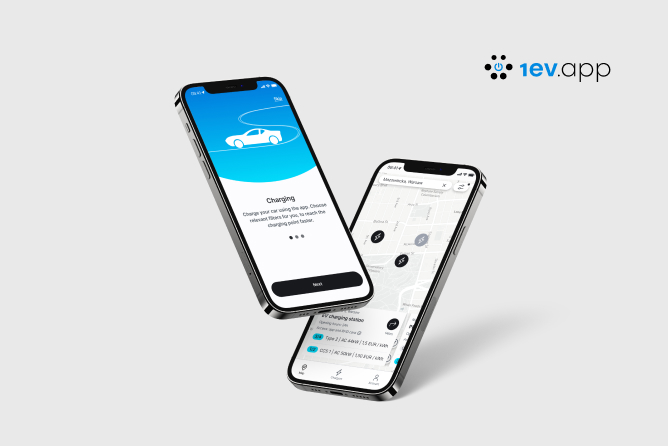Introduction
The greatest value we can offer our clients is enhancing their business operations through process digitization or creating a product tailored to market needs. Clients often come to us without a clearly defined vision for their project, leading to misunderstandings and increasing costs.
Imagine typical scenarios: a client wants an app “similar to Tinder or Booksy but with a few changes” or describes a purchasing process managed in Excel, which, with 10,000 records, only one person can handle. They ask if we can help and how much it would cost. While we’d love to provide an immediate answer, we are not mind readers. The cost of creating an app can start at $25,000 and go up to several million dollars, depending on its complexity.
We've developed a specialized service: Product Workshops to help clients create a coherent and well-thought-out product concept.
What are product workshops?
Product workshops are a collaborative process between the client and the IT team designed to:
- Define requirements and priorities.
- Determine the system’s features and budget.
- Prepare a project plan and cost estimation.
Workshop elements:
- Business needs analysis.
- Identification of target groups and their requirements.
- Creation of prototypes or mockups.
- Planning key functionalities and architecture.
- Time and cost estimation.
Why invest in product workshops?
The benefits of product workshops are multi-dimensional. Here are the most important ones:
- Clear product vision – precisely defining the scope and goals of the project.
- Time and cost savings – better planning minimizes the risk of costly changes in later stages.
- Risk minimization – avoiding errors caused by unclear requirements.
- Preliminary cost estimation – enables informed investment decisions.
Through workshops, the team can better understand the client’s needs, plan the work, and realistically estimate the project's time and costs.
What do product workshops look like?
The product workshop process consists of the following stages:
Preparation:
- Gathering information about the client’s company, industry, and competitors.
- Defining business and technical goals.
Conducting the workshops:
- Meetings (online or offline), including analyses, brainstorming sessions, and process mapping.
- Identifying personas and prioritizing features using the MoSCoW method.
- Defining the MVP (Minimal Viable Product).
Summary:
- Documenting findings in the form of a BRD (Business Requirements Documentation).
- Preparing a project plan and a detailed cost estimation.
Case study: Success stories from product workshops
Trada Meble, a company specializing in furniture manufacturing and managing sales on platforms like Amazon, Allegro, and Kaufland, approached us with the challenge of streamlining their order management processes and reducing operational costs.
Thanks to the product workshops, we were able to:
- Define key business and technical requirements, enabling a dedicated order management system – TRADA SYSTEM.
- Reduce order processing time by up to 20% through better information flow management and automation of critical process stages.
- Lower operational costs by as much as 90% by eliminating the need for expensive external tools like Baselinker and Apilo.
TRADA SYSTEM, developed based on the workshop findings, is a comprehensive application designed to digitalize Trada Meble’s processes. Its key features include:
- Order management – Centralized handling of orders from multiple sales channels with real-time status monitoring.
- Automated delivery route planning – The system optimizes fleet usage and significantly reduces planning time, replacing manual processes previously managed in Google Docs.
- Integration with Comarch Optimum – Automates invoicing, product management, and data synchronization with e-commerce platforms.
- Enhanced customer communication – Automated SMS and email notifications for order and delivery status updates.
The workshops also helped design an intuitive user interface, significantly simplifying the workload for the order fulfillment department and warehouse staff.
As a result, Trada Meble optimized its operations, increased efficiency, and laid the groundwork for further digital transformation and business scaling in the future.
Who are product workshops for?
Product workshops are designed for companies that:
- Want to implement new IT solutions to optimize business processes.
- Plan to modernize existing software.
- Are looking for an external IT team to execute complex projects.
- Have innovative ideas for applications (e.g., start-ups).
Workshops are the foundation of every IT project. Sometimes, clients decide not to proceed with a project after the workshops, saving hundreds of thousands of dollars when it becomes clear that it lacks sufficient business potential.
Conclusion
Product workshops are an investment that pays off in project success. They help clients mitigate risks, optimize budgets, and create products tailored to market needs.
If you have an idea for software but don’t know where to start, contact us to schedule a product workshop.







.jpg)


.jpg)

.jpg)


.jpg)
.jpg)

.jpg)
.jpg)

.jpg)

.jpg)
.jpg)
.jpg)

.jpg)
.webp)
.webp)


.jpg)









.webp)


.webp)






























.webp)





.webp)



.webp)


.webp)



.webp)













